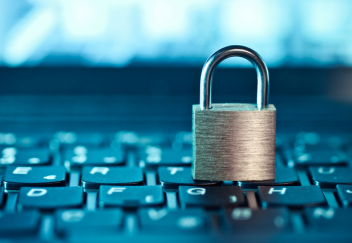Understanding and Avoiding Bank Fraud
Safeguard Your Finances: Understanding and Avoiding Bank Fraud

Bank fraud is a serious crime that can cause significant financial losses for individuals and businesses alike. It encompasses a wide range of deceitful activities targeting your bank accounts, credit cards, and other financial instruments. In today's digital age, where online banking and financial transactions are increasingly common, staying vigilant against bank fraud is crucial.
Types of Bank Fraud
Let’s explore some common types of bank fraud and how you can steer clear of them.
1. Identity Theft
Identity theft happens when someone gets hold of your personal information—like your Social Security number, bank account details, or credit card numbers—and uses it without your permission. They might open new accounts in your name, make unauthorized transactions, or commit other forms of fraud.
Prevention Tips:
- Keep an eye on your credit report regularly for any accounts that may have been opened in your name.
- Shred sensitive documents before throwing them away.
- Use strong, unique passwords for your online banking and other financial accounts.
- Be careful about sharing personal information online or over the phone.
2. Phishing
Phishing is when fraudsters send emails, texts, or make phone calls pretending to be legitimate institutions. Their goal is to trick you into revealing personal information. These messages often look very convincing and may include links to fake websites designed to steal your login details or other sensitive information.
Prevention Tips:
- Be wary of unexpected messages asking for personal information.
- Verify the legitimacy of any communication by contacting the institution directly.
- Avoid clicking on links or downloading attachments from unknown sources.
- Use anti-phishing software and keep your devices updated.
3. Check Fraud
Check fraud involves using counterfeit or altered checks to deceive a bank into releasing funds. This can include forging signatures, changing the amount on a check, or creating fake checks entirely.
Prevention Tips:
- Use electronic payment methods whenever possible.
- Regularly review your bank statements for unauthorized transactions.
- Store your checks in a safe place.
- Report any suspected check fraud to our Customer Care Team immediately.
4. ATM Skimming
ATM skimming is when a device is installed on an ATM to capture card information when you use your card. Fraudsters then use this information to create duplicate cards and withdraw money from your account.
Prevention Tips:
- Check ATMs for any unusual devices before using them.
- Cover the keypad when entering your PIN.
- Use ATMs located in well-lit, secure areas.
- Keep an eye on your bank statements for any suspicious transactions.
5. Online Banking Fraud
Online banking fraud involves unauthorized access to your online banking account to steal funds or information. This can be done through malware, hacking, or social engineering techniques.
Prevention Tips:
- Use strong, unique passwords and change them regularly.
- Enable two-factor authentication for your online banking accounts.
- Keep your computer and mobile devices updated with the latest security software.
- Avoid using public Wi-Fi for online banking transactions.
How to Protect Yourself from Bank Fraud
- Stay Informed: Keep up-to-date with the latest fraud schemes and learn how to spot them.
- Monitor Accounts Regularly: Check your bank statements and credit reports frequently for any unusual activity.
- Secure Your Information: Protect your personal and financial information both online and offline.
- Report Suspicious Activity: If you think you might be a victim of bank fraud, contact us immediately to report the incident and secure your accounts.
By understanding the different types of bank fraud and taking preventive measures, you can significantly reduce your risk of falling victim to these scams. Remember, vigilance is key. If something seems suspicious, it probably is. Don't hesitate to contact us if you suspect fraud or have any questions or concerns.
